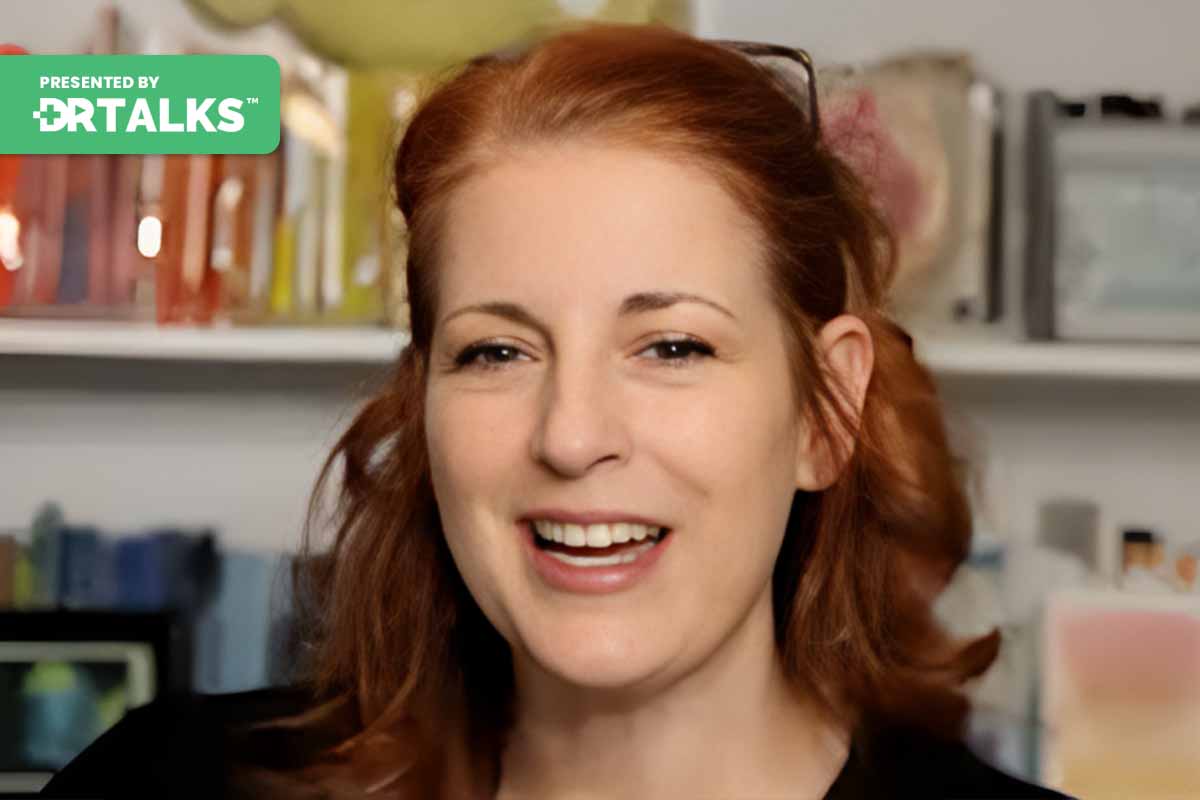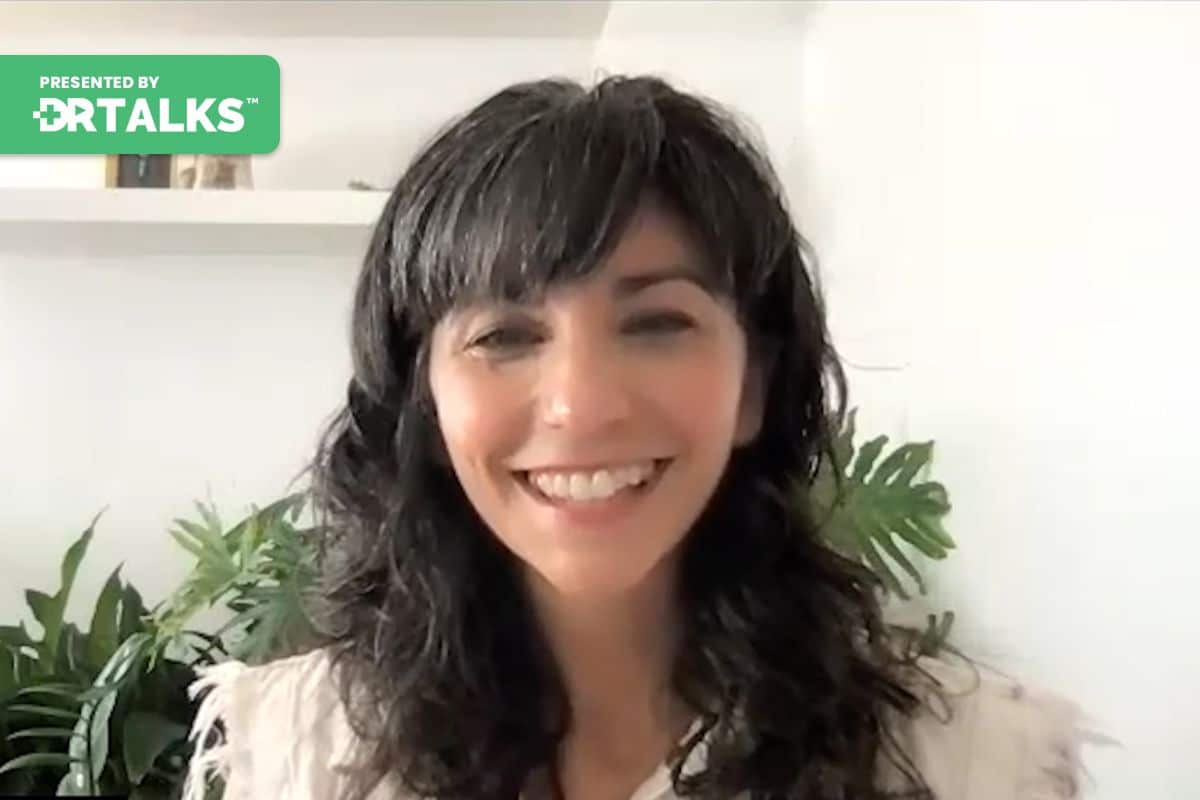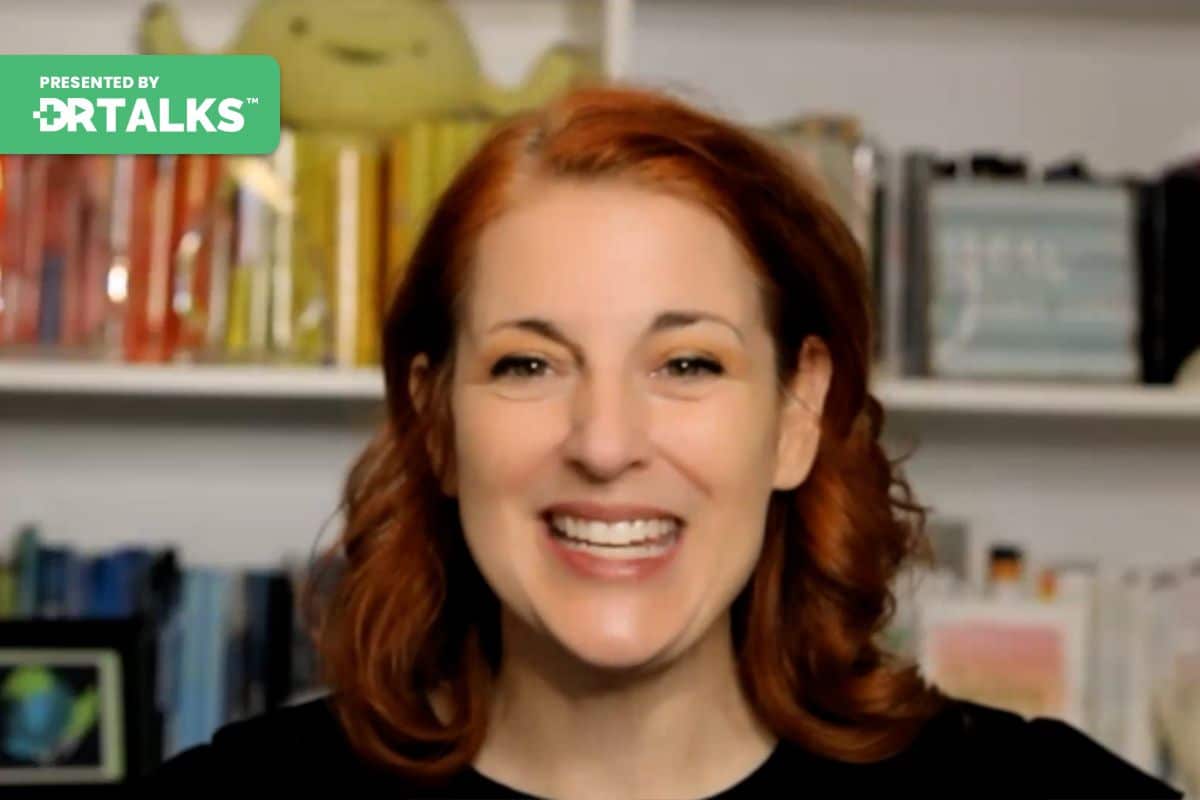So one of the first things to really help everybody understand is no matter where you are on the orgasm spectrum that it is possible to orgasm, but it is also you are not some. There’s nothing wrong with you, right? There’s nothing wrong with you at all. It just means that you haven’t learned how yet. And some of it is due to misinformation that all women should be able to have vaginal orgasms in a way that’s super easy. Like. Well, it really depends. It depends upon your anatomy, depends upon your positioning. And so we want a really consider that in relationship to orgasm. Another thing that comes up a lot is that orgasms decline with age and basically this is a myth that I want to bust down because orgasm intensity does sometimes decline with age, but that is related to things like circulation declining, things like the vaginal muscles in the pelvic floor muscles losing their elasticity. So when circular fashion declines, we can see orgasms decline, right? Because we need that blood flow to that erectile tissue, not just in men, but also in women. And that blood flow to the erectile tissue is part of what allows for sensation, pleasure, and lubrication. So it’s not so much that orgasms decline in age, is that some of the mechanisms through which blood and other things are getting into the genital tissue are changing with age. And as that happens, we can see a decline in orgasm. But what we want to do and I even interviewed Dr. Joel Kahn about this on the summit. He talks about the cardiovascular system. And we want to consider what we talked about in that interview, which is we want to get the cardiovascular system really strong and really healthy. And you’re finding that orgasms are actually declining with the aging process. That’s a good sign that your cardiovascular system is not doing as well as you want. We really want that cardiovascular system to be incredibly healthy, and we really want to make sure that that blood flow is really working to those tissues, is really going to those tissues really well to allow for that erectile tissue to become aroused and stimulate it and for allow for a good orgasm.
Another thing that will happen is the pelvic floor muscles will lose elasticity. That means their ability to stretch and relax and function like good, healthy muscles changes. When this happens, sex can become painful, right? So we want to make sure that we are working to get our pelvic floor muscles really strengthened. And that’s why we interview people like Alice Adams on this particular summit to talk about things like Kegels. The other thing that we can do that we did talk about with Alice a little bit on the seminar. In the interview, if you watch that one is really looking at jade egg exercises. Jade egg exercises are when you insert a jade egg into vaginally and you use it to contract against to work out your muscles. Now, there are some things on the Internet that will say, hey, just walk around with your jade egg all day. And as we talk about in that interview, that’s not a good idea because, with elasticity, which is what we’re going for, contracting, relaxing, we want to get your pelvic floor muscles working like regular muscles, which are the contract and they’re strong and then they fully relax. You can also use devices like vaginal dilators sometimes have been shown in research to slowly allow the tissue to stretch. And this is where you can get a very, very small dilator inserted internationally. And as the tissue becomes more and more supple, you can increase the size of the dilator. That can also really help reduce pain and heal some of those pelvic floor muscles. And again, when you have enough circulation and you have the pelvic floor muscles working really well, you get contraction or it’s supposed to be you get blood flow when it’s supposed to be there. And that is amazing for creating good orgasms. Some of this also you guys really relate, it is to know your body and your turn-ons and your turn-offs. And there are still so many people who just don’t know and haven’t identified their turn-ons and turn off what feels really good, and what doesn’t.
So another part of really having good orgasms, I feel like orgasms and the ability to orgasm in part are connected to a practice of being present at the moment because orgasm is very difficult if you’re like doing the list and you’re thinking about the kids and these things can happen, especially as women. But what you want to be doing is you want to bring your focus back to the sensation of pleasure. Because if your mind wanders and you’re not hyper-focused on what’s happening, pleasure-wise, visually-wise, connecting with your partner, then it’s very, very difficult to actually have an orgasm because you’re not focused on the joy of the moment. So another myth is that sexual desire always declines with monogamy. And I do talk about this a little bit in my talk on sexual communication, but this is a common finding. But just because it’s a common finding does not mean it’s normal. Right. So another thing really is finding desire in our partner, which is connected to the ability to orgasm. The more we can be tuned in passionately to our lover, the more we have that ability to orgasm, to bring that blood flow to that area. Right. To help that erotic tissue in the clitoris and in the entire vulva vaginal area. All of that tissue. We want to be like really getting a lot of circulation, which is happening when we are passionately connecting and being present with our lover. And so when it comes to monogamy in long-term relationships, this is when I would definitely recommend listening to that talk I did on Sensual Communication, because that’s what we’re talking about how to talk to your partner and how to talk to your partner is also related to the ability to talk about what new novel things can you do, like part of, you know, part of mating, part of the whole process of being with a partner for a long period of time and losing.
Like when we’re initially in a relationship, we get dopamine and adrenaline and all of these hormones surging, saying, I want more, I want more, I want more, I want more. That’s like the, you know, the high we get in new relationships. Well, while that goes away, here’s another way of thinking about it. If I play guitar, if I play as if I practice a sport, if I do anything in life that I practice over and over and over and over and over and over and over again, say, I’m on a sport and I practice with the same people over and over and over and over and over again. Would it get better? Or what I get works out. It’s kind of an obvious thing, right? We practice over and over and over again and we get better. This is interesting because, with sex, one of the things that we can forget is that it’s actually a truth in so many areas of life. So it has the possibility for that to happen with sex, too. But that’s where the communication comes in of really understanding partner turn-ons and turn-offs. And if we can begin to see our partner and find ways of bringing novelty, you know, find ways of mixing things up in your sexual experience, which frankly comes back to what I’ve said previously around scheduling sex. You want to schedule sex at a time of day that you and your partner of energy because when you schedule sex at a time of day, you guys have energy. Guess what? You’re going to have the energy to try a new position. You’re going to have the energy to mix something into the experience that you haven’t done before. But if you wait until right before bed when you both are probably exhausted from the day the creativity is down, the ability to think, you know, something novel. And at that point, that’s how it can just so easily sneak into the 1 to 3 positions, the 1 to 3 ways that you have sex because you’re tired. And it’s just like you want to connect, but yet you’re also exhausted, right?
So part of bringing more novelty into it, which can also help with orgasm, finding other ways, right? Of keeping the focus on the moment. The more you can experience and bring your mind to the pleasure of the moment to feel every tactile thing that’s occurring in your body, the more you can bring yourself into that moment of feeling your heart deeply connect with your partner, the easier orgasm tends to be. It’s very difficult, like I said, to have an orgasm if your mind’s all over the place. So part of bringing your mind back to the present moment can be trying novel things. But if you’re exhausted, your mind’s not going to be thinking about novel things. Your mind’s going to be thinking about, okay, at least I’m having sex, you know, let’s do this thing so I can at least cross that off the lift list of being successful. Because I got a longer list I got to get to bed and attend to tomorrow. And that’s a very, very real thing. So that’s where scheduling sex can definitely help with your orgasms. Another thing that’s really important to mention is body and genital image. And this comes up in research that there is a direct connection with how you feel. You look exterior really with your images and how you feel like your genitals look with the ability to enjoy sex and have orgasms. And so if we’re thinking about things like, oh my gosh, is this position going to make my stomach look funny? Or What kind of face am I making? Or, Gosh, like, do my genitals look right? Maybe they’re too hairy. Maybe they’re not hairy enough. Maybe my lips are too big, maybe my lips are too small. If those kind of things go on in your head, guess what? You’re not present to this sensation of pleasure. And the more that you’re away from the sensation of pleasure, the harder it is to orgasm. Right? So what we’ve seen in research is the more that wherever you’re at, right, like there’s always things we want to do to improve our health. And I do feel that having a healthy body weight is very connected to longevity, to anti-aging, to good circulation, which is connected to sexuality, all of that. So we definitely want to improve that, but also find ways of wherever you’re at to work to improve, but also love your body and just give your body as much love as you can for wherever it is on the spectrum right now.
And the more that we can do that, the more we can actually be present at the moment versus worrying about if our thighs look too big from a particular angle. And I see this in these dance classes I take I talk about this quite a bit where I see women in these pole dancing classes I take and women are dressed very scantily. It’s a women-only group. It’s, you know, all about just caring for, you know, one’s own passion. And it’s an internal kind of experience, a dance class. And the women that are really, really, really just beautiful and sexy and sensual in their movements are not necessarily the ones that look a certain way. It’s the women that are actually so tuned in to how their body moves and they’re so tuned in to the pleasure of their movement that you can see pleasure all over their body, in their movements, on their face, all of that. But they’re not thinking about that. They’re just being so present inside of their body as to what feels pleasurable. And so that’s a lot of the quote-unquote trick with orgasm like a lot of it is understanding what brings you pleasure and communicating that and to your partner, being honest with yourself and getting out of the way of thinking about with, you know, do you look right, are you moving right? All these different things.
The more you can drop that with practice the more we can tune into our own pleasure body. And that’s something that I feel like where meditation and sex and orgasm really cross over because sex and sexual intimacy is a practice of being present as a practice of being present and honest with ourselves. And in that practice, we can bring that to our entire lives, right? If we’re more present with ourselves in what feels good and what doesn’t feel good, if we practice communicating that in a healthy and safety way, safe way to our partner, the more we create these bonds and the more those techniques of how do we communicate in hard ways, the more the techniques of how do we love ourselves so deeply and allow ourselves these moments of feeling pleasure and putting the world aside and just taking a break from all of it that can bleed over and impact our entire lives. So again, thank you so much for listening to this entire summit and this particular talk. I hope you will listen to some of my other talks. You can find more information about me in my show notes here. And again, my practice is mylibidodoc.com. I’ll see you in another interview.











